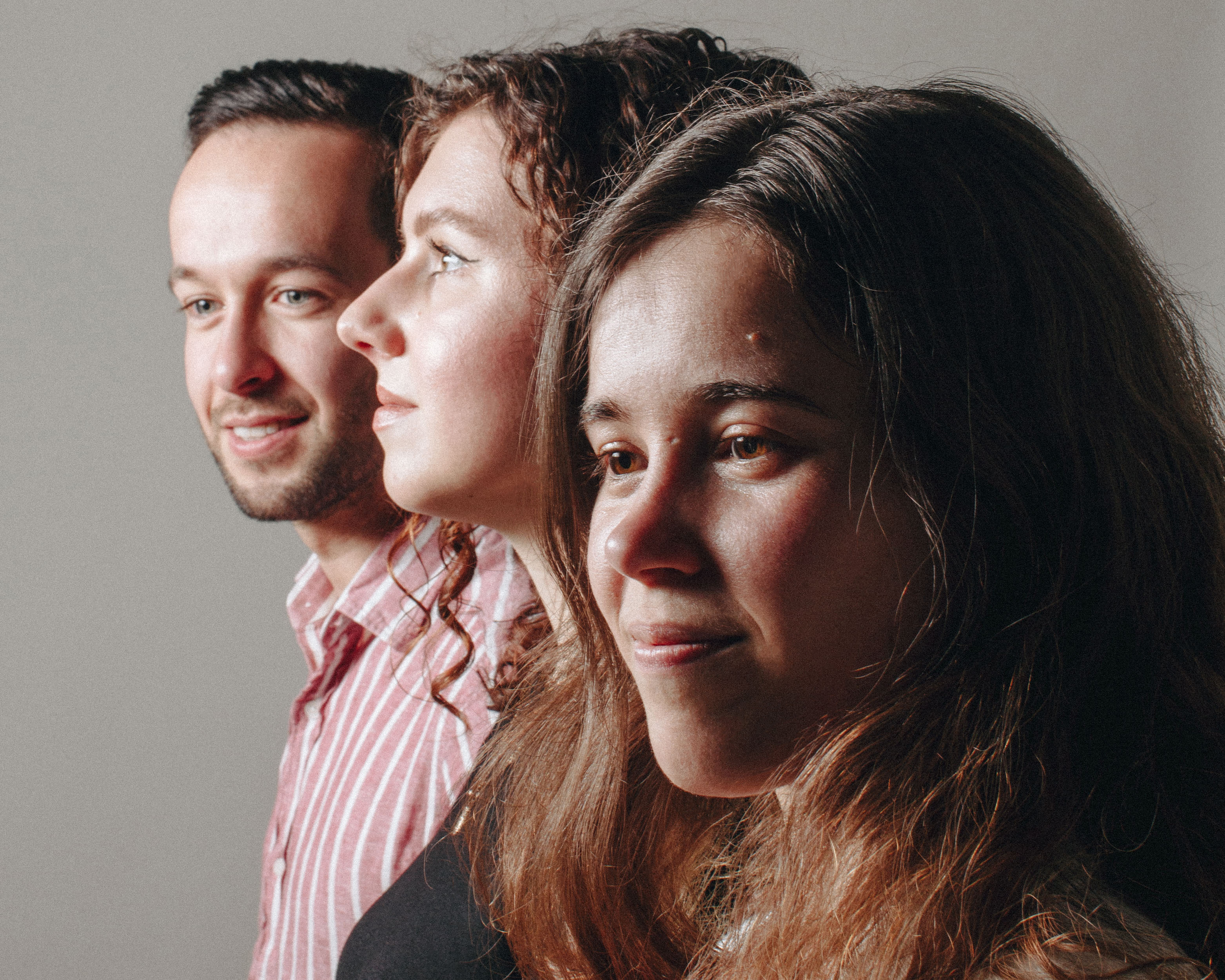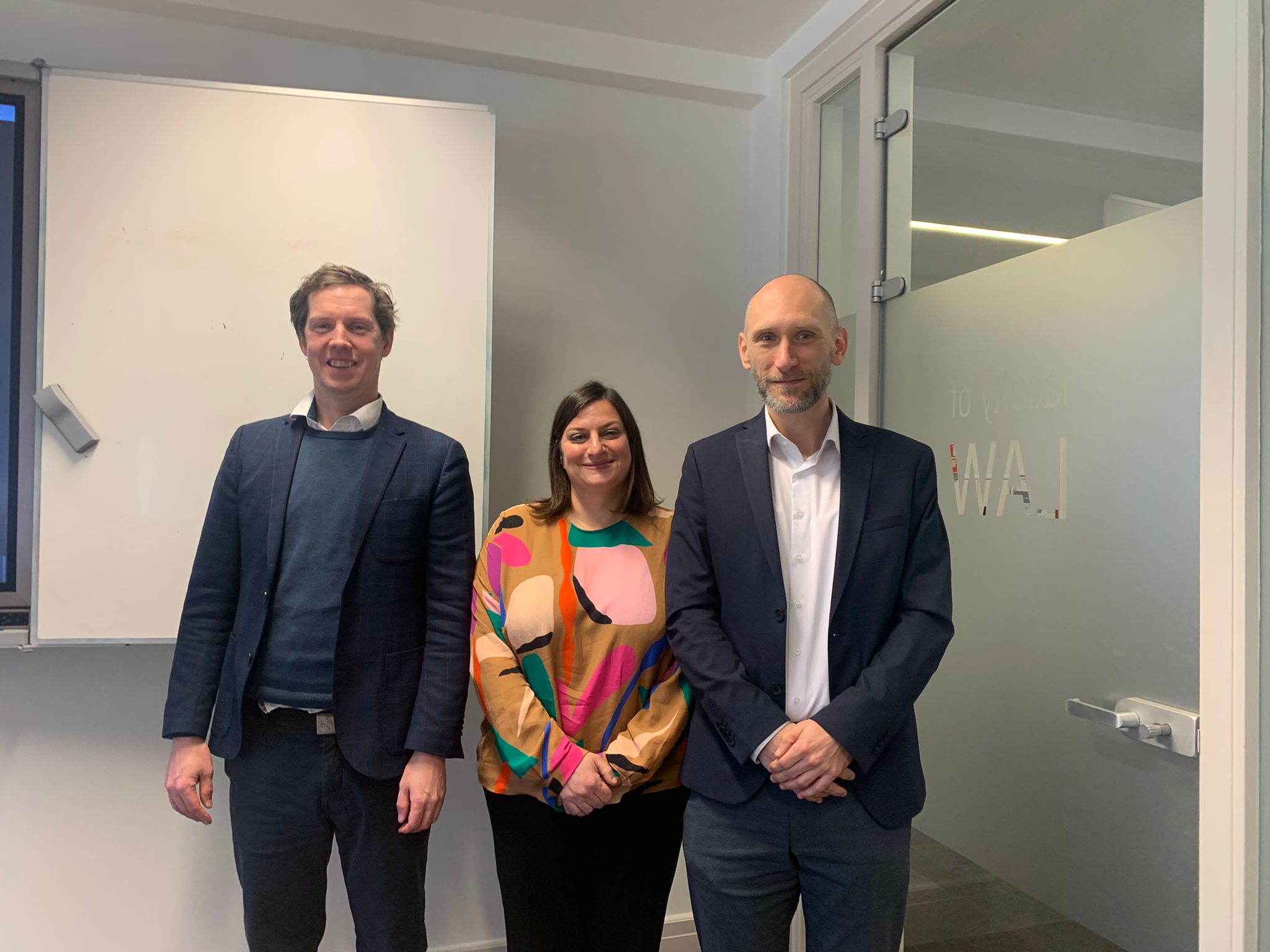How Russia’s war against Ukraine is challenging the EU
Valentina Golunova, Anna de Jong and Ruben Tans, PhD candidates at the Maastricht Centre for European Law (MCEL), organised a workshop on the impact of the Russian invasion of Ukraine on EU law. Issues such as sanctions against Russia and the temporary protection of Ukrainian refugees pose legal dilemmas and affect the interpretation and application of EU law.
She was shocked when the war broke out. Valentina Golunova, a Russian citizen, had been living in the Netherlands for four years. “I’d been concerned about the escalation of the conflict for some time, but I was still hoping there wouldn’t be a full-scale invasion. It’s unbelievable that such gross violations of international law and human rights are still happening in the 21st century. And it’s painful to realise that it’s my own country committing those violations.
At a meeting of the MCEL research institute, it became clear that a number of visitors were working on topics related to the invasion. Golunova had an idea: why not organise a workshop on the transformative impact of the war on EU law? “There were people who thought the conflict would remain local and wouldn’t spread to Europe, but I had my doubts. We had to draw attention to the broader consequences for actors not directly involved in the military conflict.” She also had a personal motivation. “I wanted to support Ukraine and show that not all Russians support Putin. Many of us feel the pain, although we’re obviously not the victims here.”
Temporary protection
A surprising array of perspectives came to light during the workshop, say the three PhD candidates. There were lectures on the consequences of the sanctions against Russia for the art market and internet law. An online speaker suggested letting the war peter out by putting a stop to fossil fuels. Ruben Tans’ lecture focused on why the EU felt responsible for welcoming Ukrainian refugees. They are part of the European family, so the narrative goes, which also explains why the EU directive providing temporary protection for a group of people was not triggered when Syrian refugees began arriving in Europe en masse a few years earlier.
In the case of Ukraine, the directive was triggered for the first time in the history of the EU. Tans views this as a milestone in European migration history. In his presentation, he asked: how long is ‘temporary’? What if the war continues? “The alternative—following the regular asylum procedure—is practically impossible for both the hundreds of thousands of refugees and the member states themselves. The EU may need to come up with a new way of helping these people.”
Oligarchs
Anna de Jong’s presentation dealt with the unforeseen consequences of the measures against Russia for art and the art market. “All of a sudden, Russian oligarchs on the sanctions list were no longer allowed to donate to cultural institutions or visit TEFAF. The EU also imposed a prohibition on transporting works of art across European borders. At the time, Paris had a large collection of art on loan from a Russian oligarch, and Russia had a large collection of paintings on loan from France. How do you get that art back? You can have clear guidelines for sanctions in mind, but putting them into practice is more complex. After all, Europe has always promoted the free movement of people and goods. It’s clear that throwing up barriers—saying ‘You can’t’ instead of ‘You can’—is new for the EU.”

Valentina Golunova, Anna de Jong and Ruben Tans are PhD candidates at UM and members of the MCEL research institute.
Golunova’s research focuses on the transformation of EU regulations for online platforms and the impact of the new rules on freedom of expression.
De Jong’s dissertation examines EU regulation of the art market. Her latest publications address the impact on culture of the Europeanisation and privatisation of public security.
Tans’ research investigates the integration of refugees into the labour market and educational systems of Belgium and the Netherlands.
More on UM and the war in Ukraine

War propaganda
The war also has implications for EU media and internet law. Golunova points to the consequences of the sanctions against Russian war propaganda. Russian broadcasters and media outlets such as RT and Sputnik have been banned from distributing their content in the EU. The censorship is justified, she says, as these outlets are disseminating misinformation and war propaganda. “But the ban may also restrict the freedom of expression of EU citizens. The European Commission has asked Google and other online platforms to remove content from these outlets from search results and to ensure that internet users can’t share their articles or videos. This goes against an important principle of internet law—the prohibition of general monitoring by online platforms—and also contravenes the EU Charter of Fundamental Rights. Even if media outlets are propagating misinformation, it’s important for internet users to be able to discuss, fact-check and criticise it.”
A new EU?
The workshop not only showed that the war in Ukraine has diverse repercussions for EU law, but also brought to light an underlying transformation. The war has fuelled a dynamic of inclusion and exclusion in EU law, Golunova notes. “On the one hand, the EU has become more welcoming to new member states and Ukrainian refugees. On the other hand, it is raising borders in the form of sanctions and a stricter foreign security policy. These are striking developments for the EU.” De Jong: “It may be too early to say, but the EU seems to be going through an identity change. How it views itself and seeks to portray itself might be changing.”
Text: Hans van Vinkeveen
Photo homepage: Taras Gren | Wikimedia | CC BY-SA 2.0
Also read
-
The Globalisation & Law Network organised a roundtable on Circular Economy and Trade, promoting a discussion about circular economy regulations in the European Union and Brazil.
-
How can and should the government respond to the current low participation in the national immunization programme? Can certain forms of coercion be justified? The book Inducing Immunity? Justifying Immunisation Policies in Times of Vaccine Hesitancy provides answers.
-
On 20 March 2024, the Globalisation & Law Network hosted the seminar featuring Professor Jacob Öberg (University of Southern Denmark).
- from Faculty of Law


